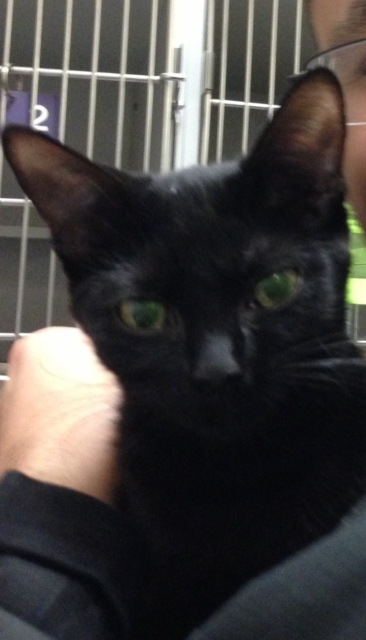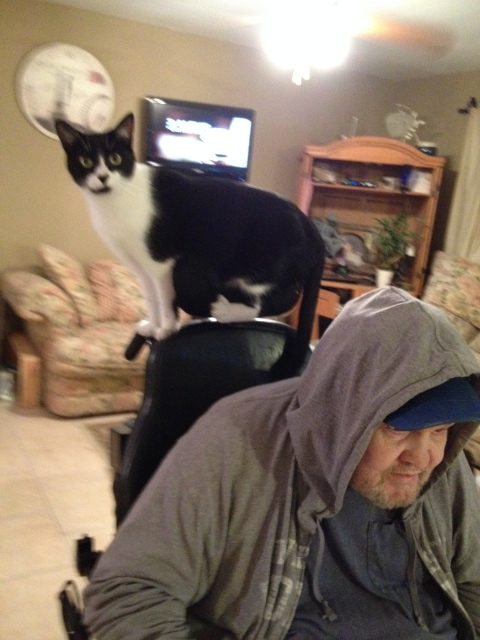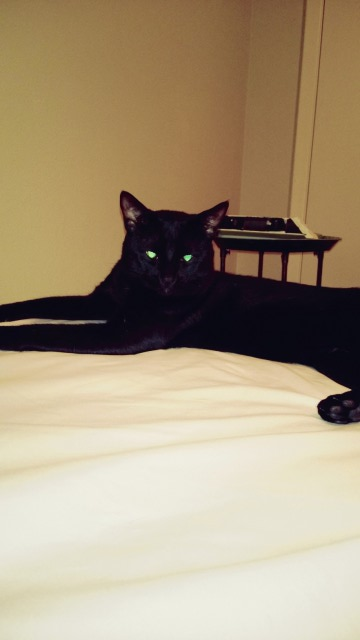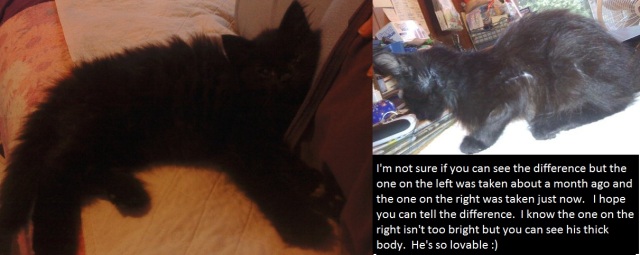QuestionQUESTION: What besides diet can cause a cat to not absorb calcium properly? Genetics? Inbreeding? Improper diet/care to mother during pregnancy? Thank you
ANSWER: Hi Christine. Yes, genetics could potentially cause a cat not to absorb calcium properly. There are familial cases of the inability to absorb calicum.
Pancreatic insufficiency will cause a cat's food to go through the digestive system largely undigested, so he won't derive many nutrients from it. In addition to a calcium deficiency, he will probably have protein loss, too, resulting in clinical signs such as weight loss and poor muscle tone. Sometimes a supplement called Pancrezyme can help predigest food to aid in the absorption of nutrients. It's sprinkled on food before the cat eats it. Some vets will give the supplement a shot first, but some vets will order a specialized blood test to check for pancreatic enzymes, first. A condition called Inflammatory Bowel Disease will also cause failure to properly absorb nutrients from food. You will see diarrhea or vomiting with this disease, though. Pancreatitis, as opposed to pancreatic insufficiency, is yet another possibility. Some run of the mill tests check for a few pancreatic levels, but the only reliable test for pancreatitis is called a PLI. A blood sample must be sent to a specialized laboratory to have this test performed.
A very common reason for low calcium is kidney failure. This doesn't cause failure to absorb calcium properly but rather causes calcium to be LOST through urine, because they urinate excessively, and they are not able to metabolize vitamin D, which aids in the absorption of calcium.
If kidney levels have been checked and are fine, however, you may want to think about hypoparathyroidism - a condition in which the parathyroid glands are either missing or have stopped working properly. Primary hypoparathyroidism is relatively uncommon in cats, but it causes the body to stop absorbing calcium from food. Your vet would run a blood test to check for PTH levels, and if low or absent, then oral calcium may be given. Also, vitamin D is usually recommended, since it helps with the absorption of calcium.
---------- FOLLOW-UP ----------
QUESTION: My C. lynx was diagnosed with MBD at 4 months old. I was feeding it baby chicks, and chicken parts including bones, feathers, intestines and all. I was also supplementing it with Oasis, which is a calcium/phosphorus supplement for cats. So I don't understand how my lynx got MBD. I know that the prenatal care of the mother was poor, and also know that there was inbreeding involved. So, is this possible reason to believe this could have caused malabsorption of calcium for her? Thank you
AnswerI'm sorry to hear that. Inbreeding and poor nutrition during pregnancy can certainly cause a lot of problems in the offspring that we may not predict. I'd still be curious about the hypoparathyroidism. He may have been born without any parathyroid glands at all, which could be the result of inbreeding, or just a blip in nature. It happens sometimes.
One thing I might think about int he future is feeding a little less chicken and feeding more red meat. Chicken feed is pumped full of phosphorus. If the kitten doesn't get at least as much calcium as he does phosphorus, it could cause the parathyroid glands to signal the removal of calcium from the bones.

 Bombay at local pound??!
Question
Wide set eyes Kitten
Hi I have a
Bombay at local pound??!
Question
Wide set eyes Kitten
Hi I have a
 testosterone replacement for neutered male cat
Question
Monkey riding on dads Monkey sleeping h
testosterone replacement for neutered male cat
Question
Monkey riding on dads Monkey sleeping h
 Missing unnuetered cat for 11 days worried sick
Question
My Sweet Boy Bel
First I want to thank
Missing unnuetered cat for 11 days worried sick
Question
My Sweet Boy Bel
First I want to thank
 Is my kitten counted as a male calico?
QuestionQUESTION: I have a new litter of kittens and th
Is my kitten counted as a male calico?
QuestionQUESTION: I have a new litter of kittens and th
 Kitten lossing weight drastically
QuestionTubby before and after
QUESTION: Hello.
Kitten lossing weight drastically
QuestionTubby before and after
QUESTION: Hello.